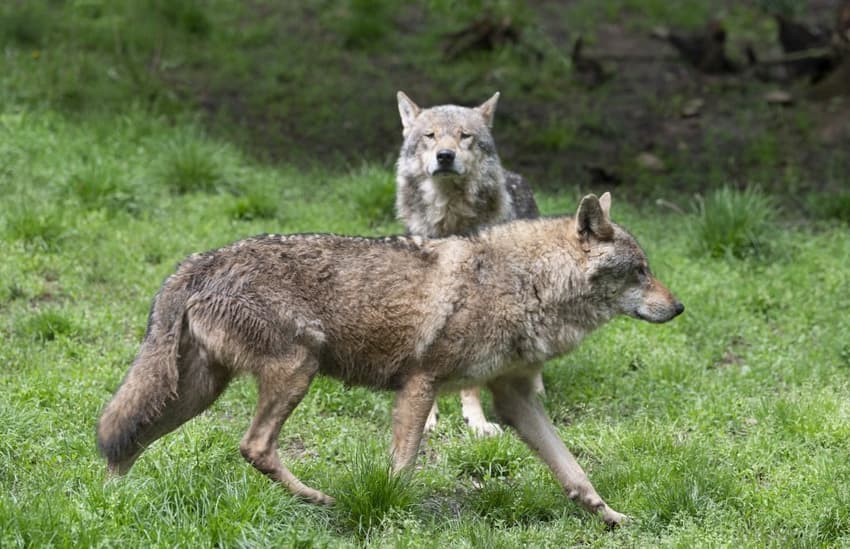Austrian regions to allow controversial killing of wolves

Several regions of Austria have allowed the controversial killing of wolves after reporting an increase in livestock
attacks, sparking debate in the Alpine EU member.
The World Wildlife Fund (WWF) says the orders to kill the wolves violate European law, which lists them as protected animals.
In the southern province of Carinthia, five wolves have been killed so far this year under legislation introduced in January. The killing of eight more has been authorised, according to authorities.
Neighbouring Tyrol, known for cattle grazing freely on mountain pastures, has authorised the killing of six wolves -- yet to be carried out -- under a decree from February, according to province spokesman Maximilian Brandhuber.
"Time and again wolves are sighted near settlements and kill livestock," he told AFP this week, adding that evidence of their presence has "risen sharply since 2019."
After disappearing in the 19th century, the wolf has gradually returned in recent years to repopulate former habitats in Austria.
Some 80 wolves were counted in 2022, according to official estimates.
The wolf is protected under a European Union directive adopted in 1992, but it does provide for exemptions to the directive, according to Brandhuber.
"Austria does not yet have many wolves and it must make its contribution to the conservation of the species, as other European countries do," WWF expert Christian Picher told AFP, urging the European Commission to act.
WWF said the country of 9.1 million people should learn from neighbouring states like Italy, which "already have decades of experience on the subject," calling on Austria to improve the monitoring of the animals and avoid "alarming" the population unnecessarily.
Comments
See Also
The World Wildlife Fund (WWF) says the orders to kill the wolves violate European law, which lists them as protected animals.
In the southern province of Carinthia, five wolves have been killed so far this year under legislation introduced in January. The killing of eight more has been authorised, according to authorities.
Neighbouring Tyrol, known for cattle grazing freely on mountain pastures, has authorised the killing of six wolves -- yet to be carried out -- under a decree from February, according to province spokesman Maximilian Brandhuber.
"Time and again wolves are sighted near settlements and kill livestock," he told AFP this week, adding that evidence of their presence has "risen sharply since 2019."
After disappearing in the 19th century, the wolf has gradually returned in recent years to repopulate former habitats in Austria.
Some 80 wolves were counted in 2022, according to official estimates.
The wolf is protected under a European Union directive adopted in 1992, but it does provide for exemptions to the directive, according to Brandhuber.
"Austria does not yet have many wolves and it must make its contribution to the conservation of the species, as other European countries do," WWF expert Christian Picher told AFP, urging the European Commission to act.
WWF said the country of 9.1 million people should learn from neighbouring states like Italy, which "already have decades of experience on the subject," calling on Austria to improve the monitoring of the animals and avoid "alarming" the population unnecessarily.
Join the conversation in our comments section below. Share your own views and experience and if you have a question or suggestion for our journalists then email us at [email protected].
Please keep comments civil, constructive and on topic – and make sure to read our terms of use before getting involved.
Please log in here to leave a comment.